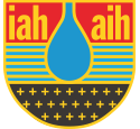News
-
A relatively small amount of groundwater trickling through Alaska’s tundra is releasing huge quantities of carbon into the ocean, where it can contribute to climate change, according to new research. As permafrost continues to thaw under climate change, the amount of freshwater making its way to the sea underground will... read more...
-
To understand the state of groundwater in India, the Central Ground Water Board (CGWB) assessed more than 15,000 groundwater samples from across the country in 2023. Analysis revealed that India’s groundwater contains a range of pollutants in excess of permissible limits. This contamination is driven by both natural geochemical processes... read more...
-
Extreme climate events endanger groundwater quality and stability when rain water evades natural purification processes in the soil. This was demonstrated in long-term groundwater analyses using new analytical methods, as described in a recent study in Nature Communications. As billions of people rely on sufficient and clean groundwater for drinking,... read more...
-
RAF bases are hotspots of toxic “forever chemical” pollution in water, analysis of Ministry of Defence documents has revealed. Some of the highest concentrations of these chemicals in British drinking water sources are near RAF bases, official sampling results obtained by the Guardian and Watershed Investigations show. Find out more... read more...
-
Researchers have created a simulation that maps underground water on a continental scale. The results show the unseen path that a raindrop or melted snowflake takes before re-emerging in freshwater streams, following water from the land surface to depths far below and back up again, emerging up to 100 miles... read more...
-
India’s underground reserves of water have been depleted by intensive farming practices influenced by subsidies, according to recent research. Although well-intentioned, these subsidies can lead to harmful outcomes. Since the 1980s, groundwater levels have plunged by more than 8 metres on average, with significant over-production of water intensive crops. Find... read more...
-
The animators behind Wallace and Gromit will create a short film for Lincolnshire Count Council to warn people about groundwater flooding. The film is being produced as part of Project Groundwater, a government-funded scheme to protect areas at risk of this type of flooding – where water from underground rises to... read more...
-
Groundwater contamination is a pervasive challenge that has dire consequences for health, education, and economic outcomes. In India, a country where 67% of groundwater is already contaminated with substances such as arsenic, fluoride, and nitrates, the stakes are alarmingly high. Recent research has revealed the devastating effects of groundwater contamination... read more...
-
The second Thailand Groundwater Symposium, held 19-21 August 2024 in Bangkok, focused on the theme of “Strengthening Groundwater Sustainability Under Climate Change”. The event brought together researchers, practitioners, policymakers and development organizations to share their experiences in groundwater management, innovation and technology. Find out more https://www.sei.org/perspectives/building-capacity-groundwater-management-cambodia/ read more...
-
Seawater will infiltrate underground freshwater supplies in about three of every four coastal areas around the world by the year 2100, according to a recent study led by researchers at NASA’s Jet Propulsion Laboratory in Southern California. In addition to making water in some coastal aquifers undrinkable and unusable for... read more...



